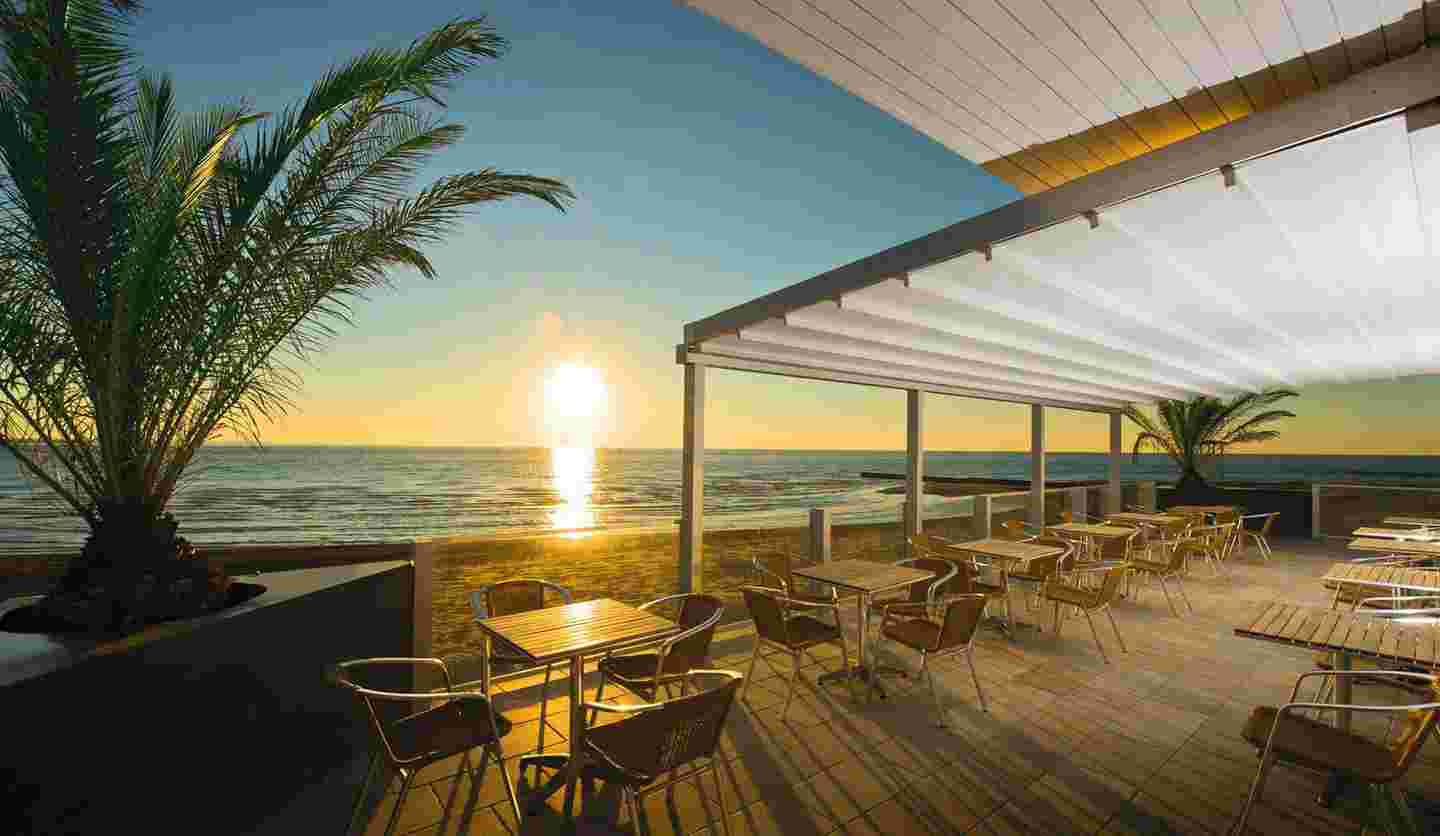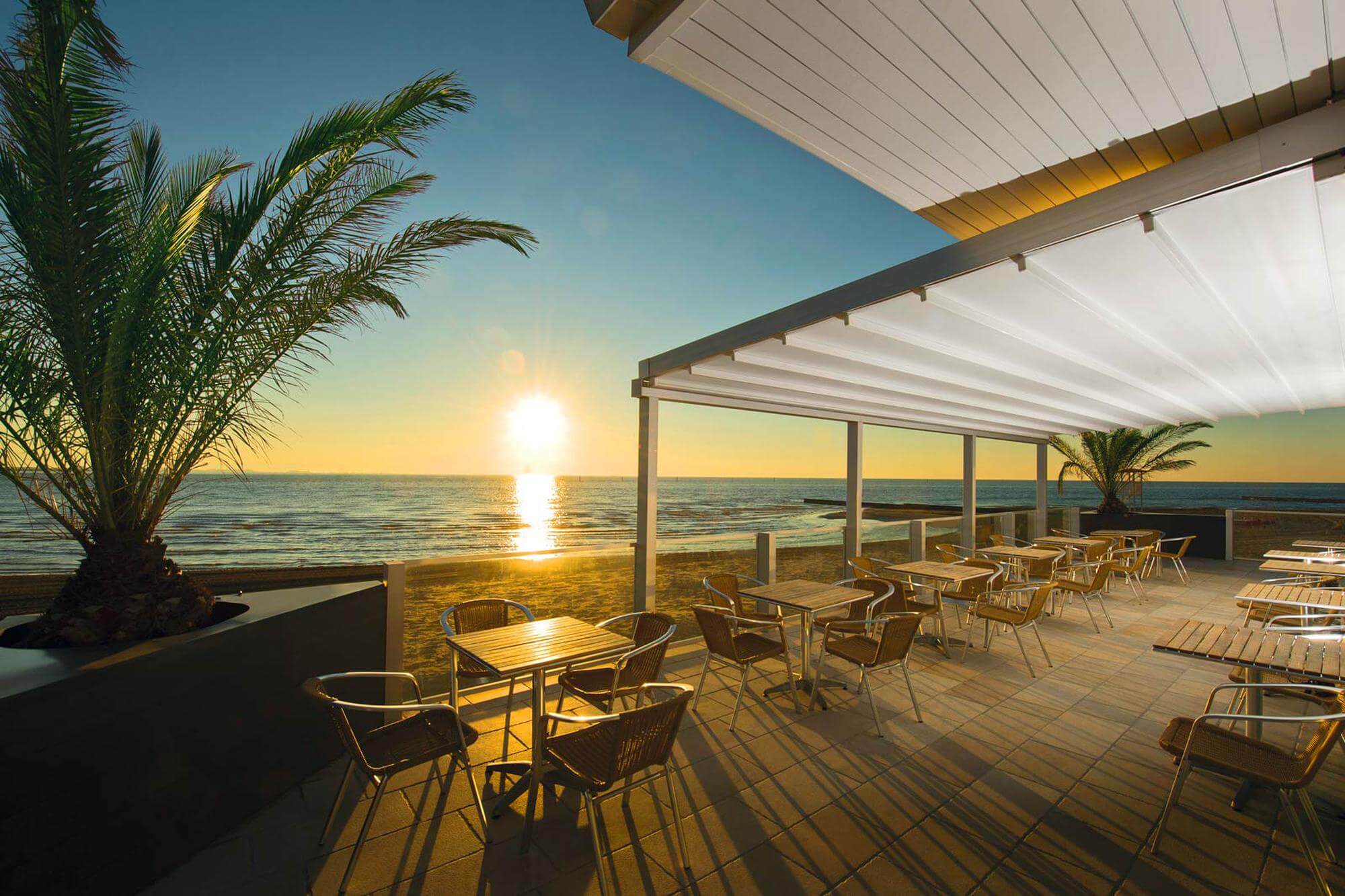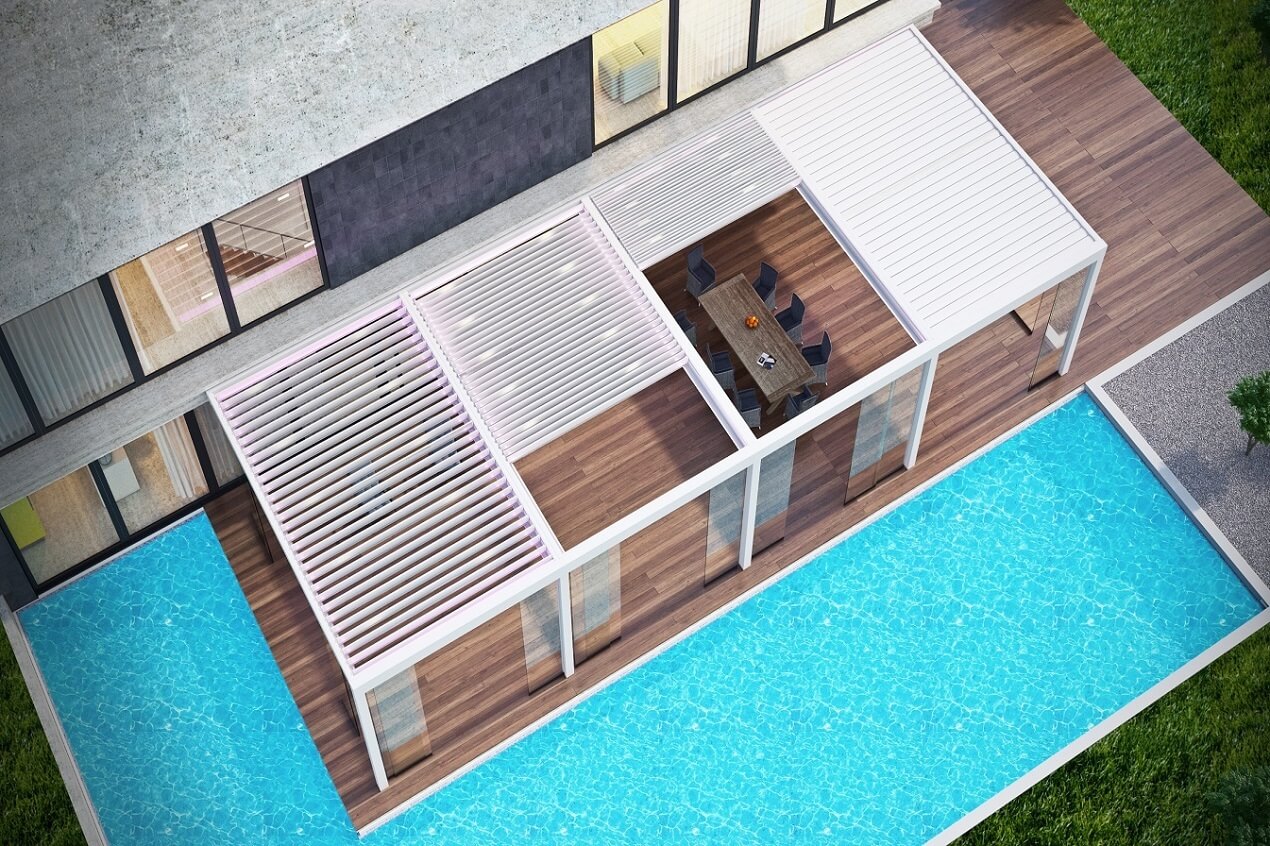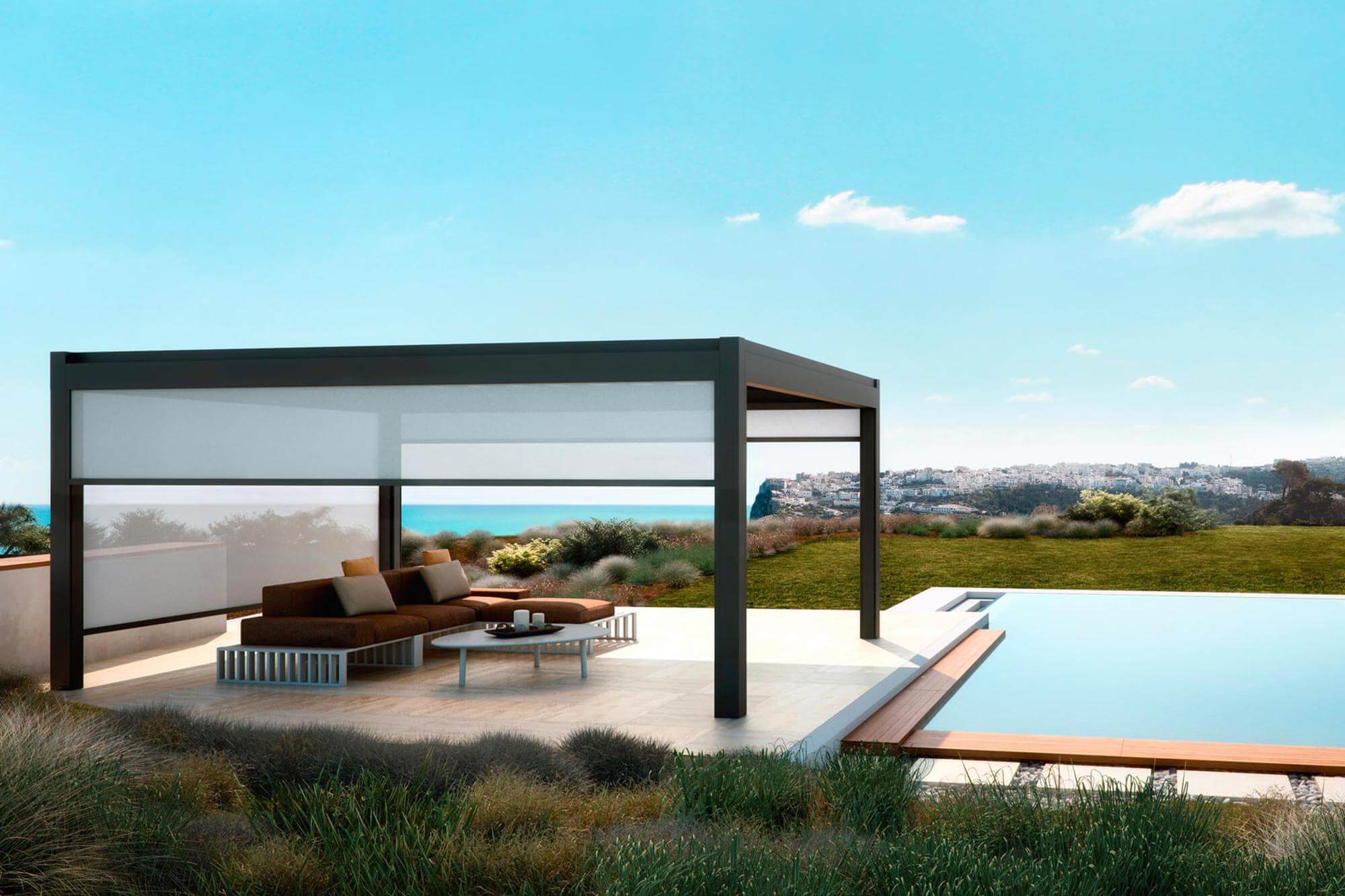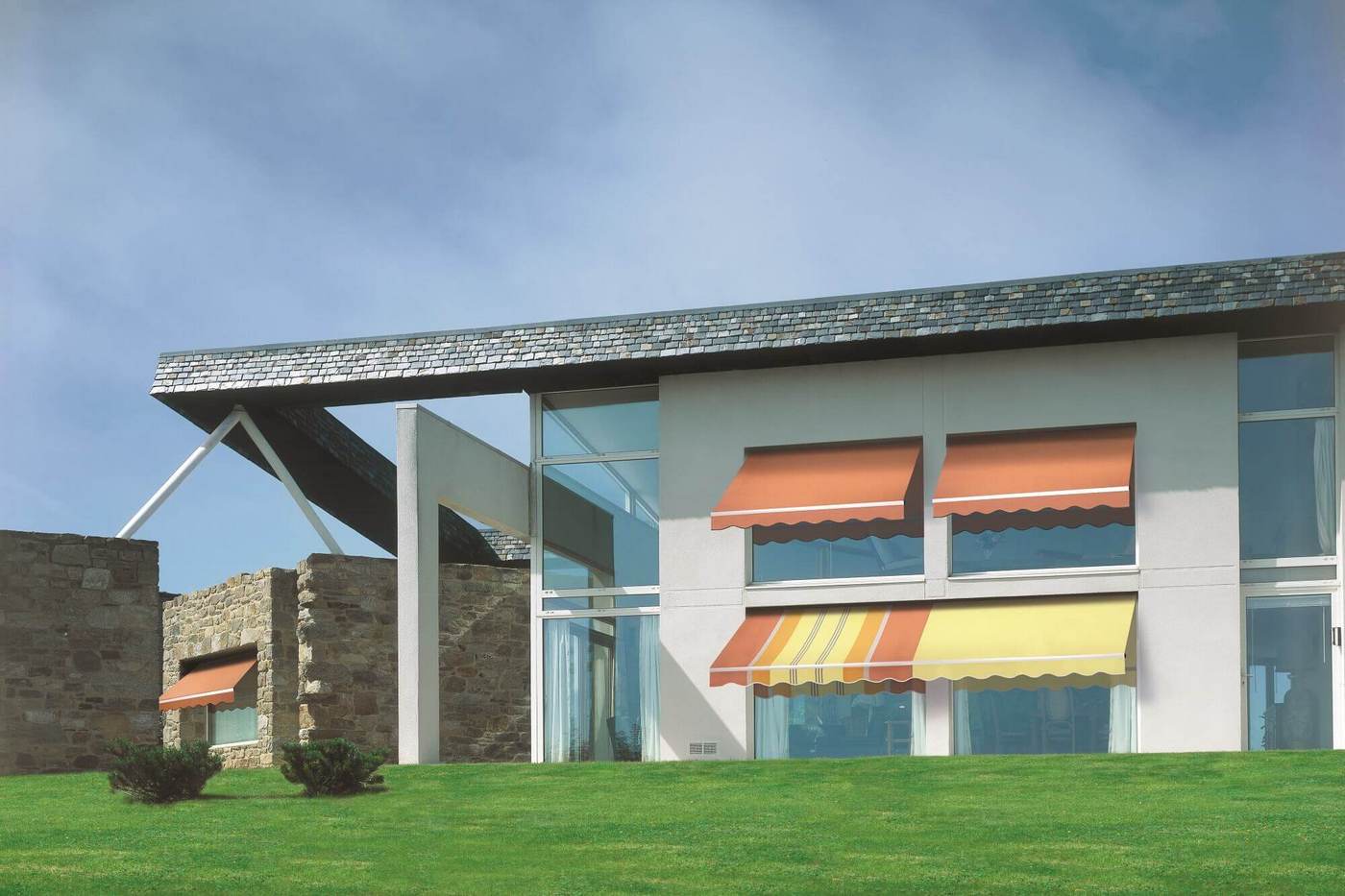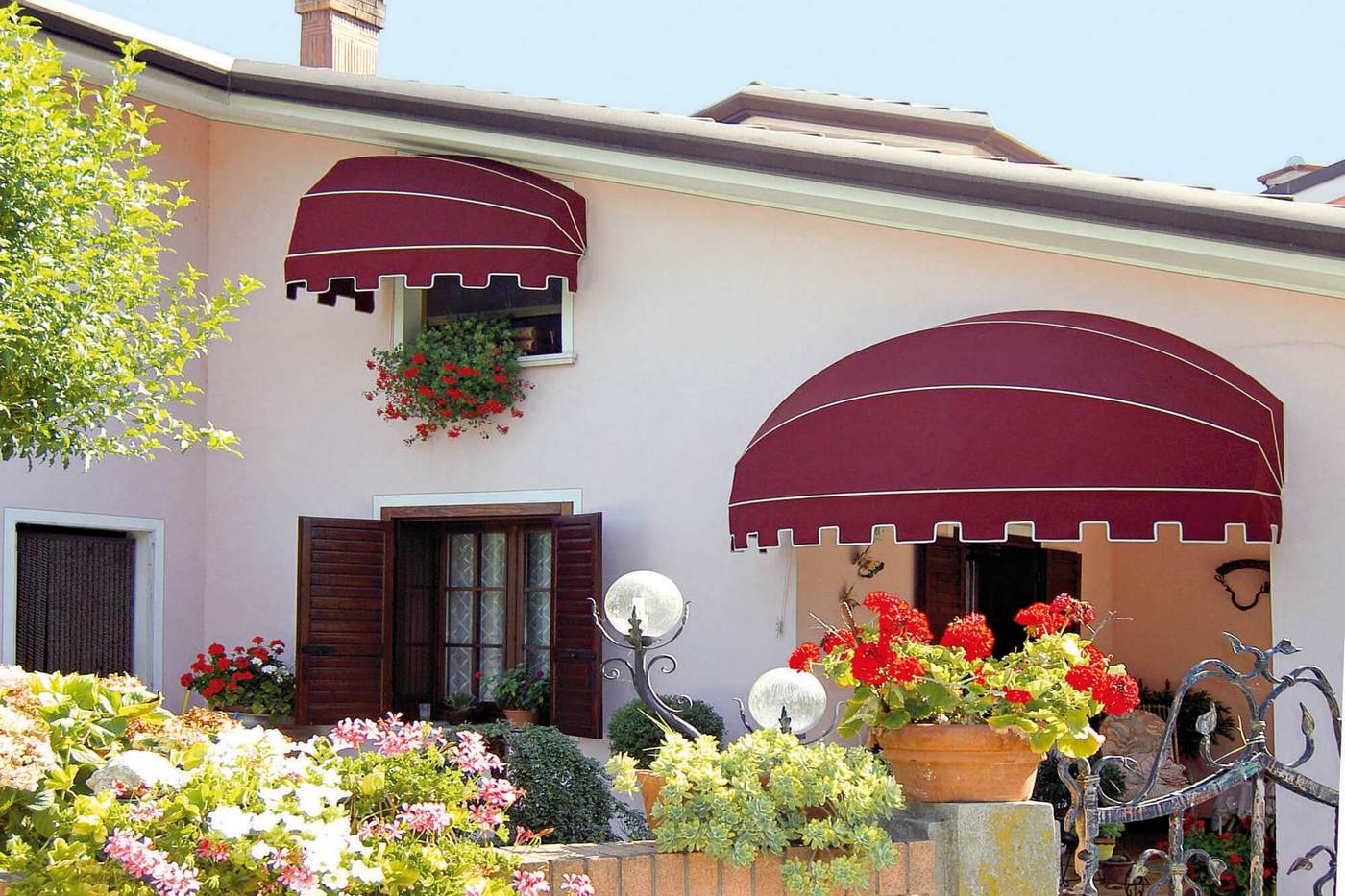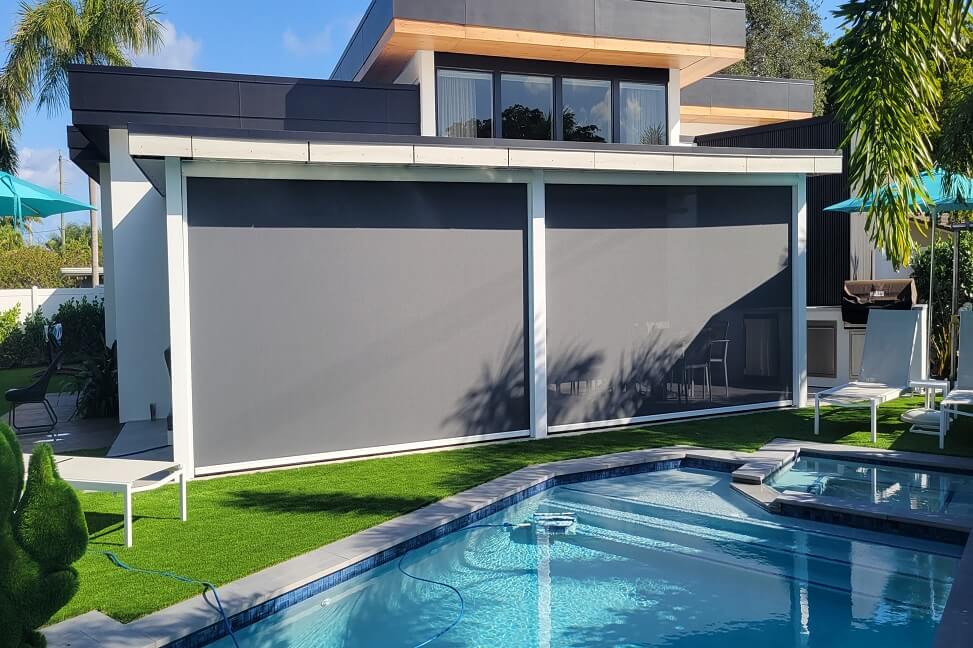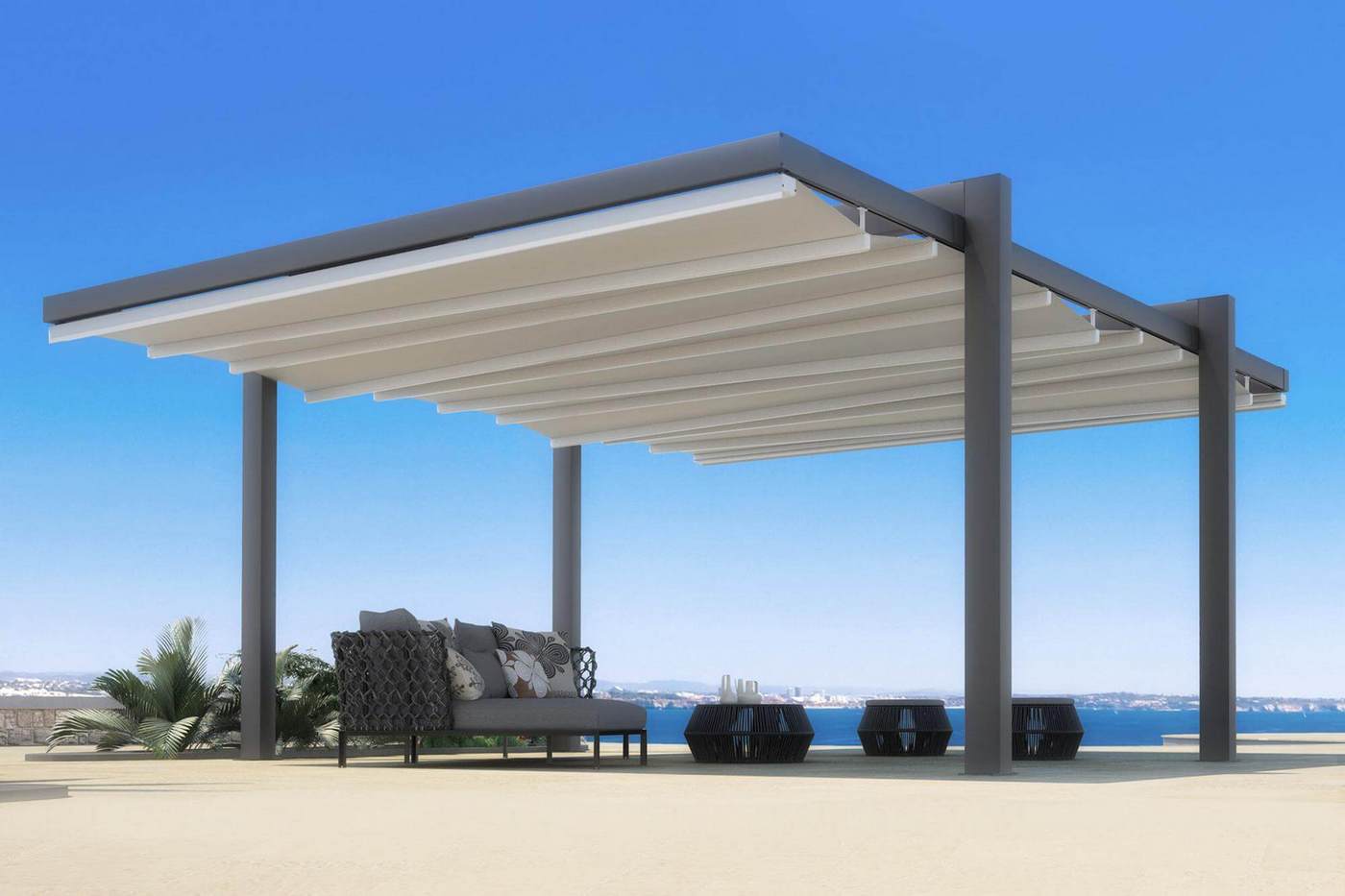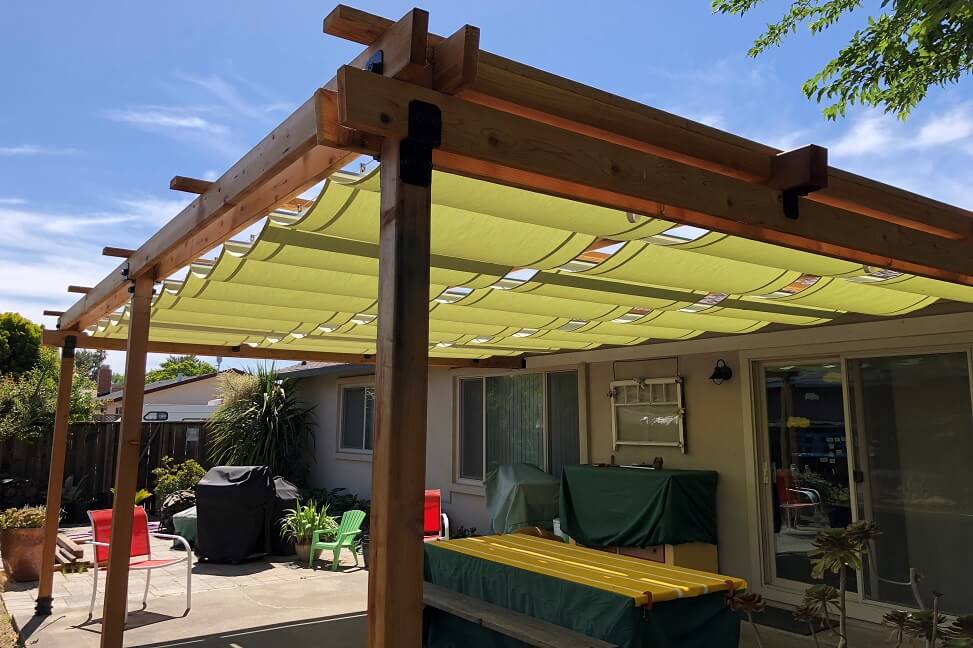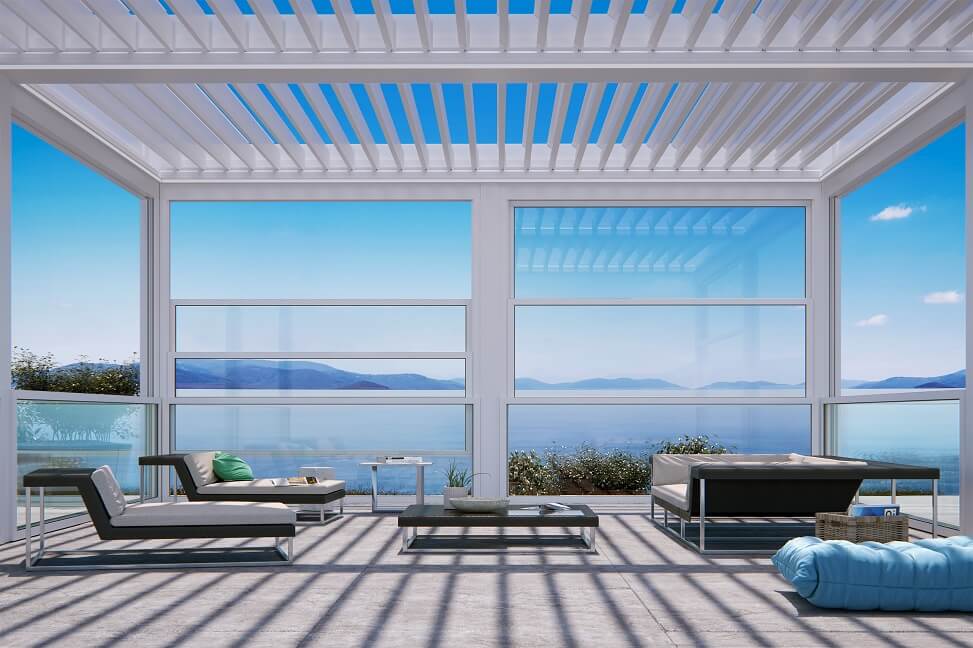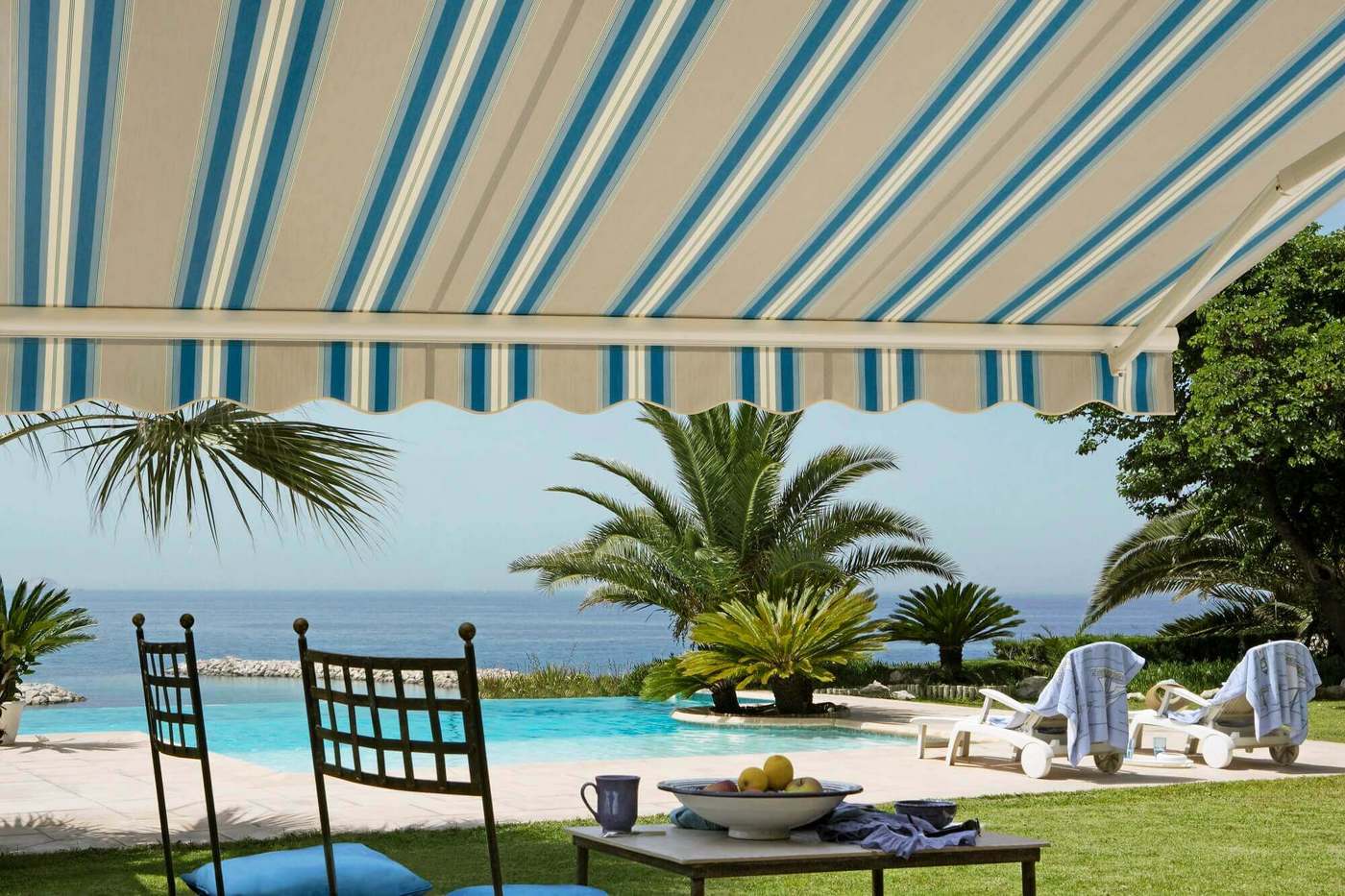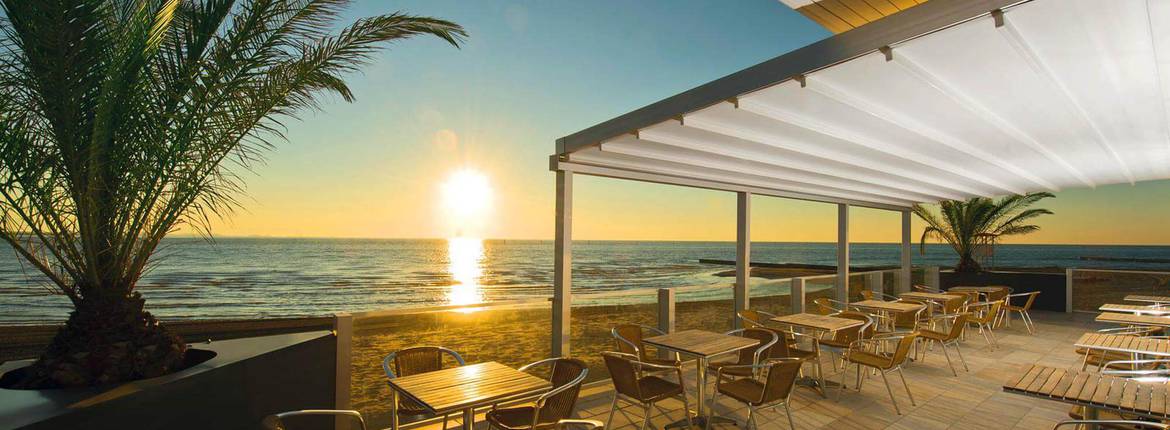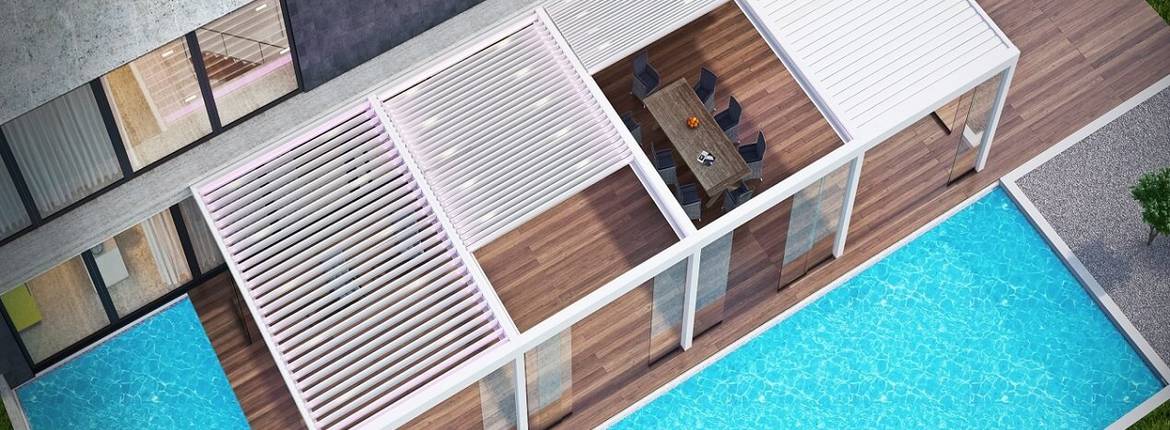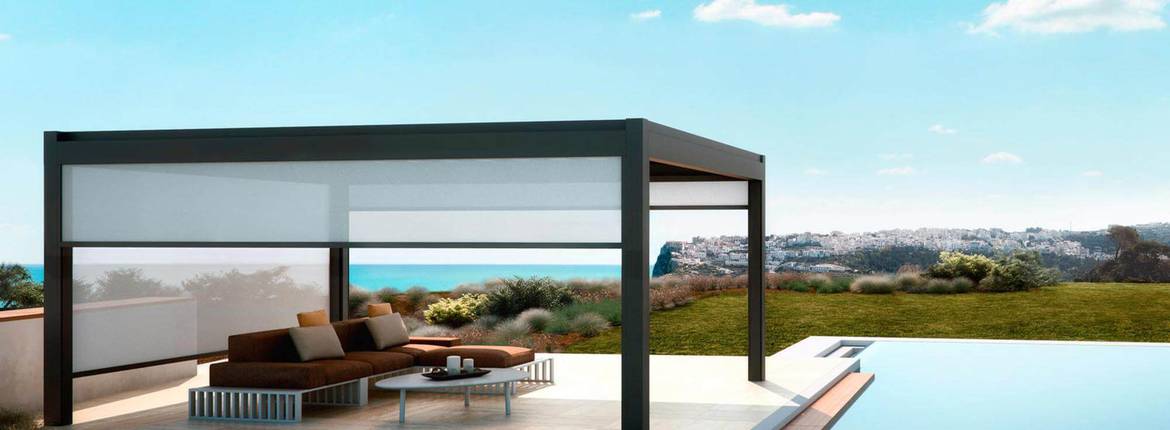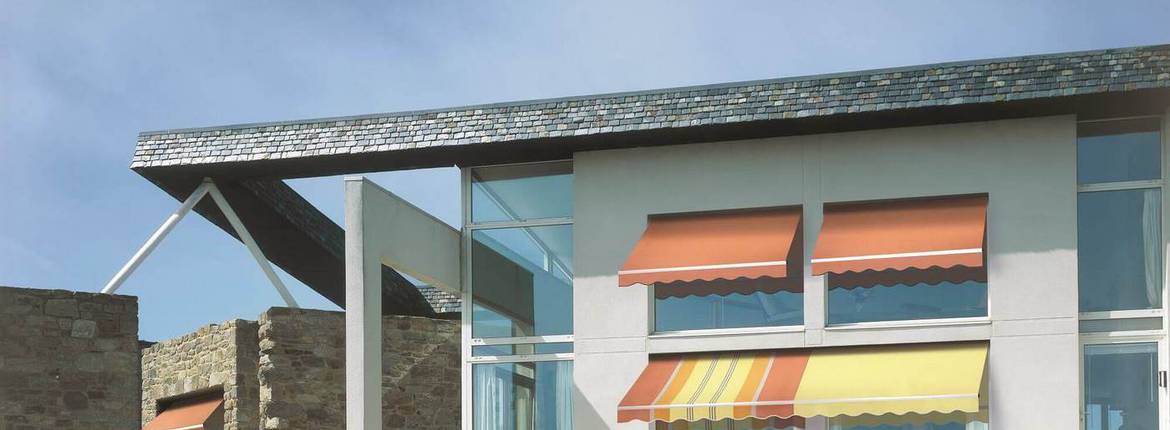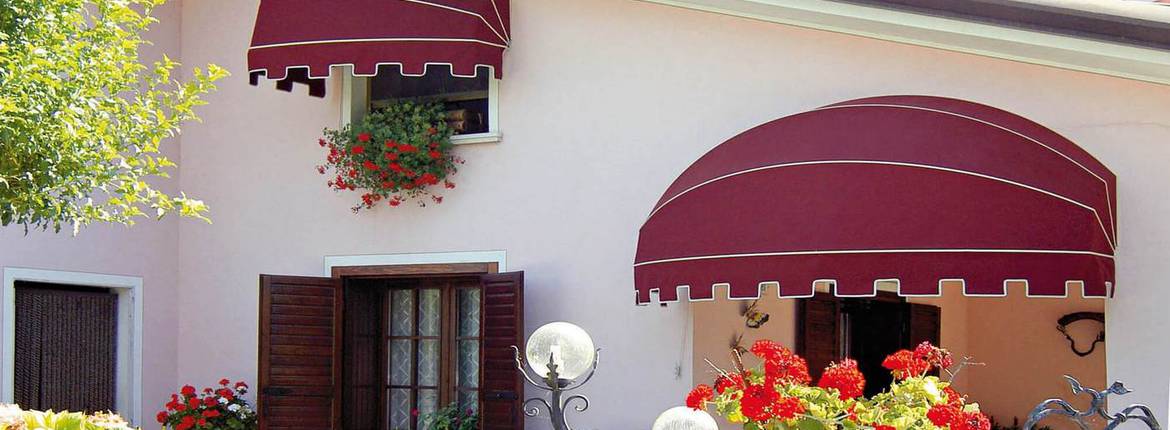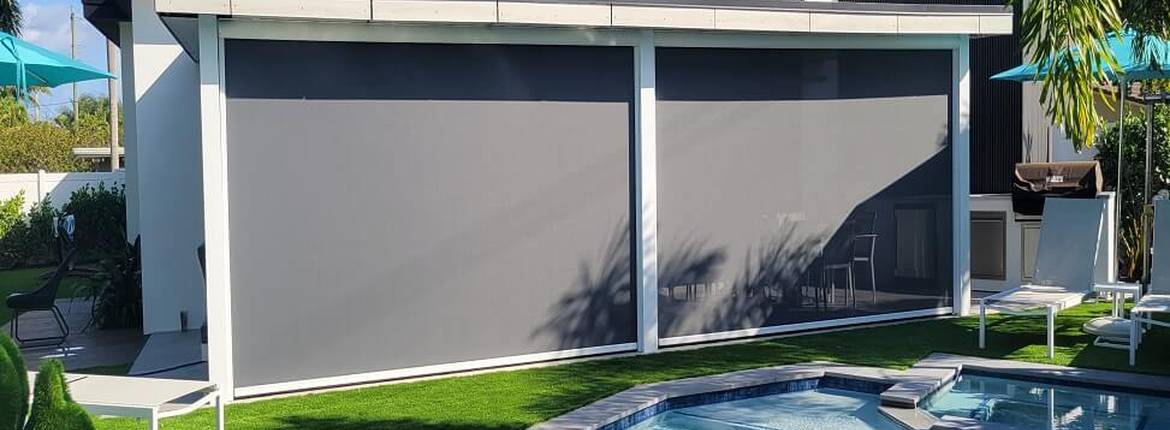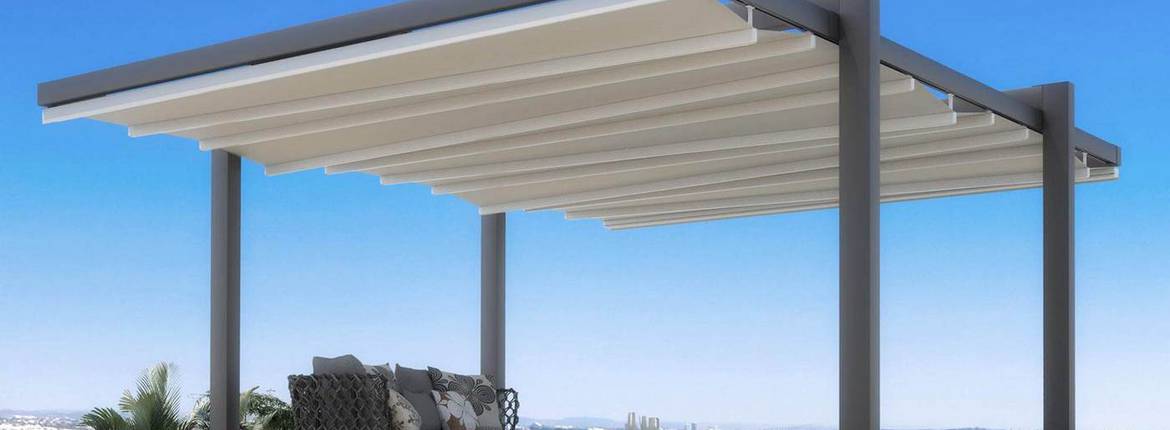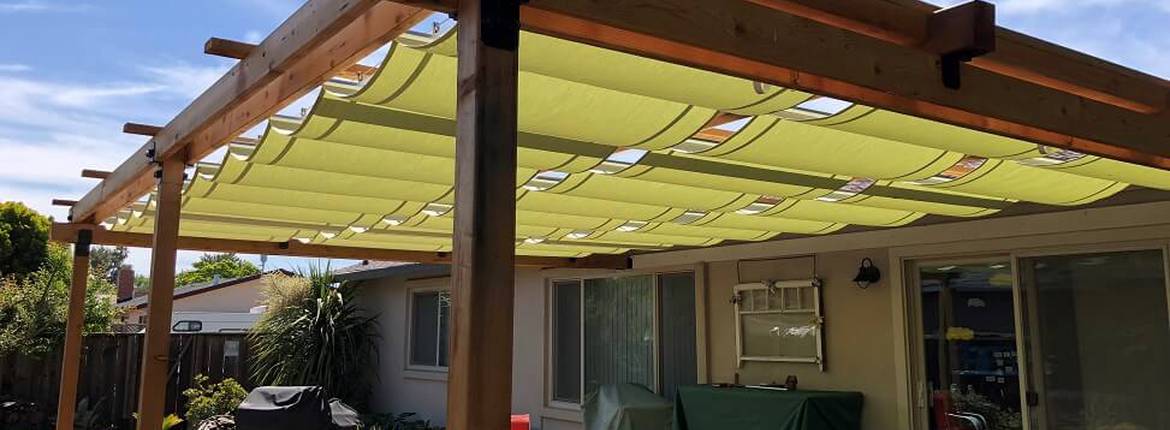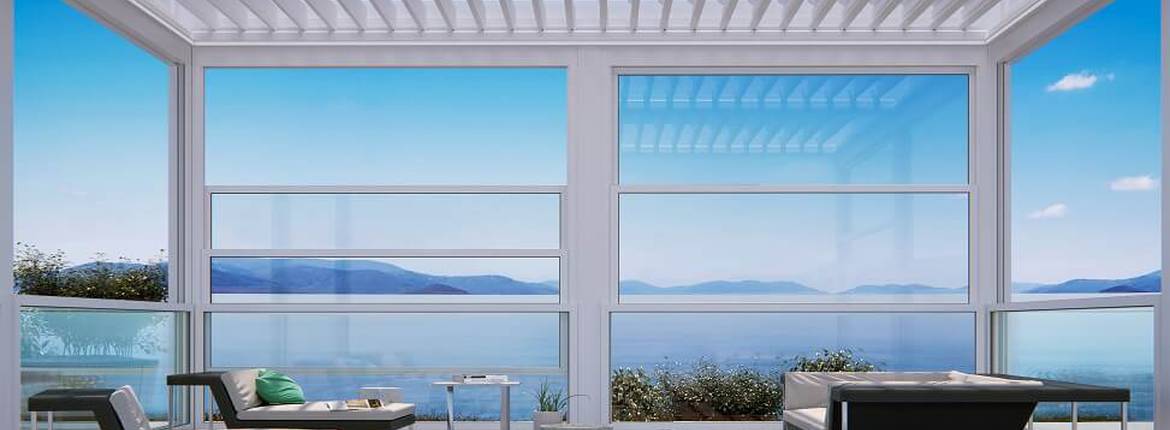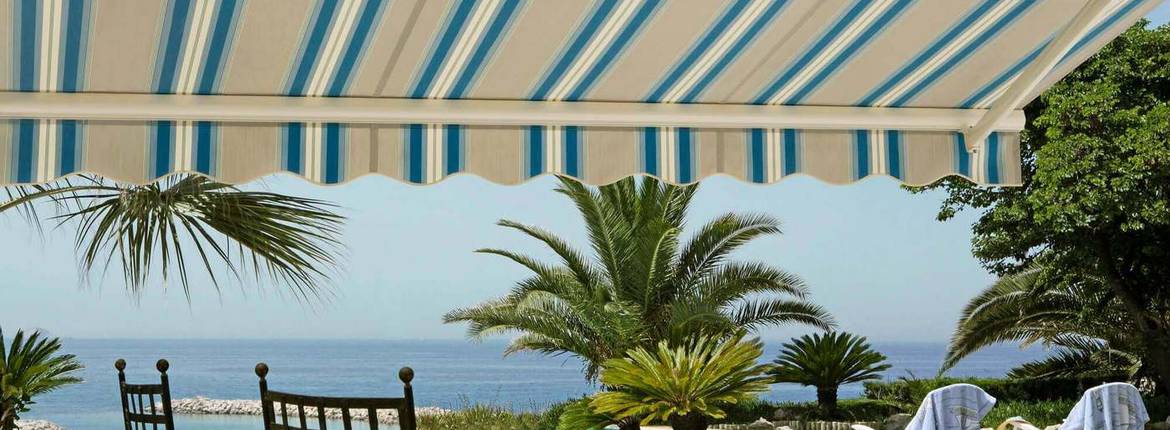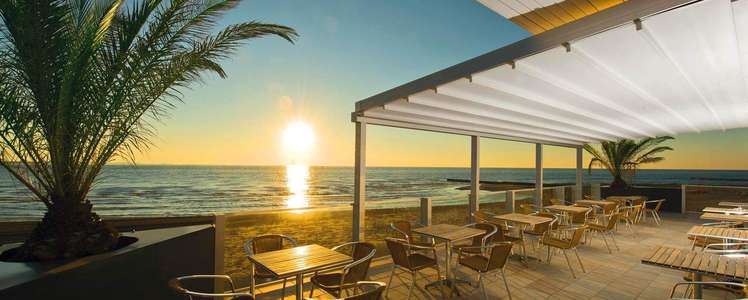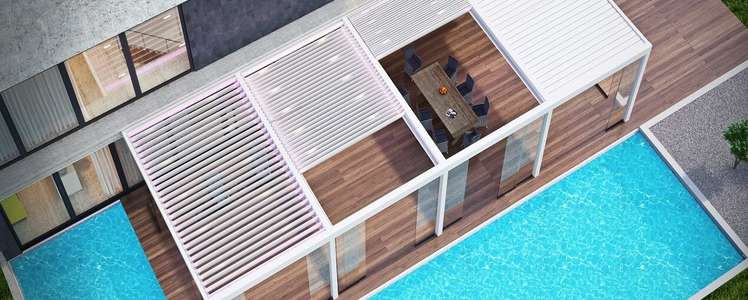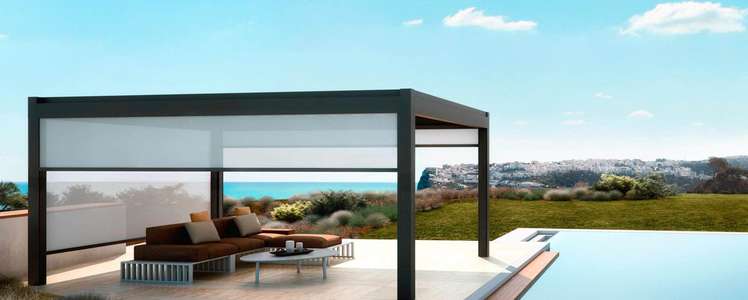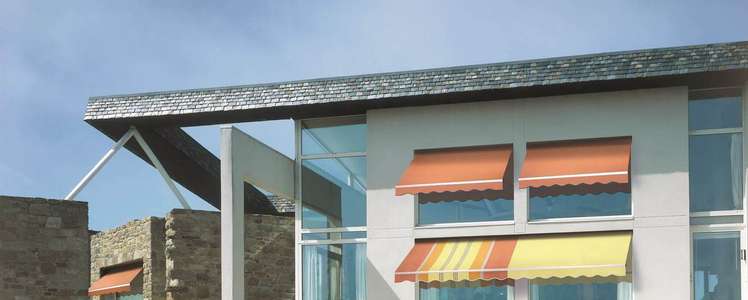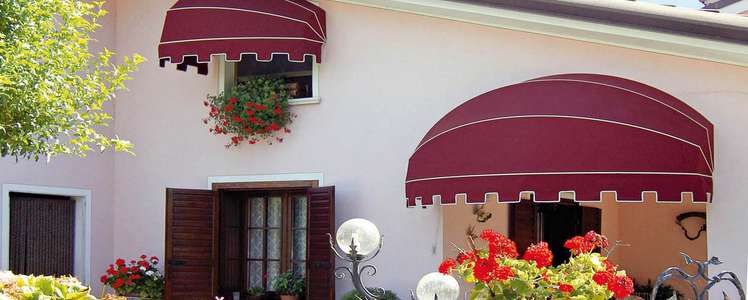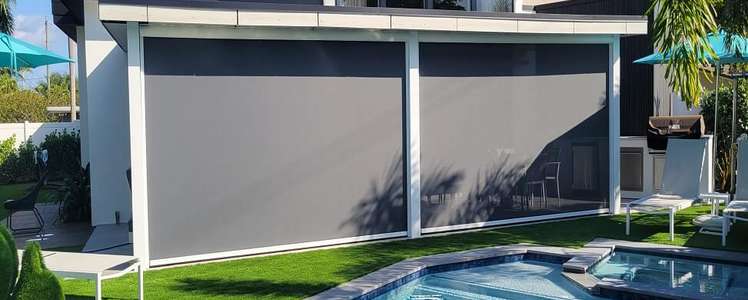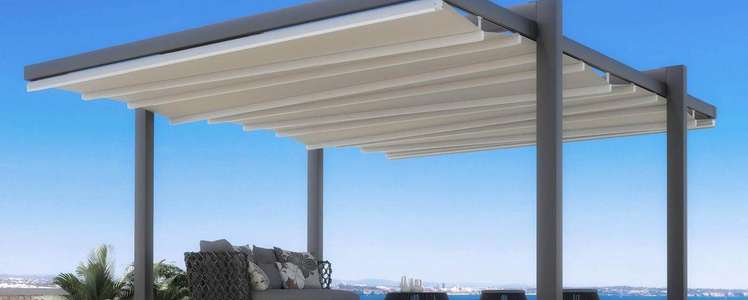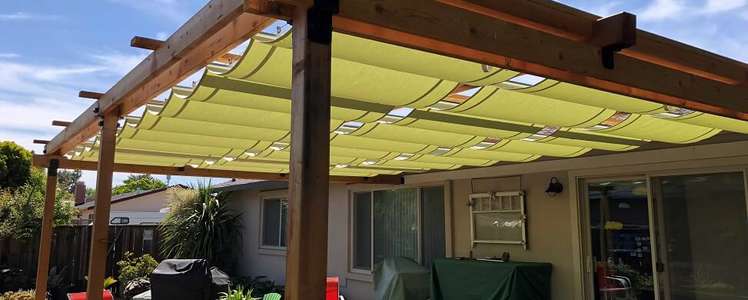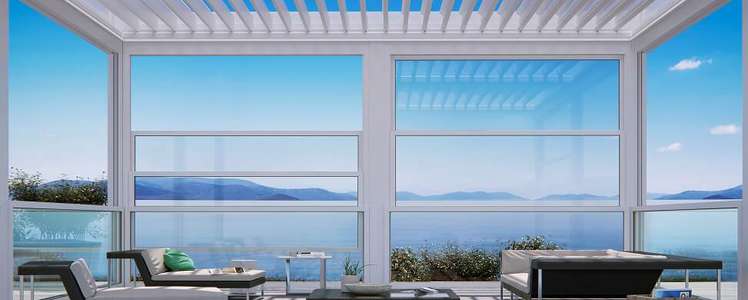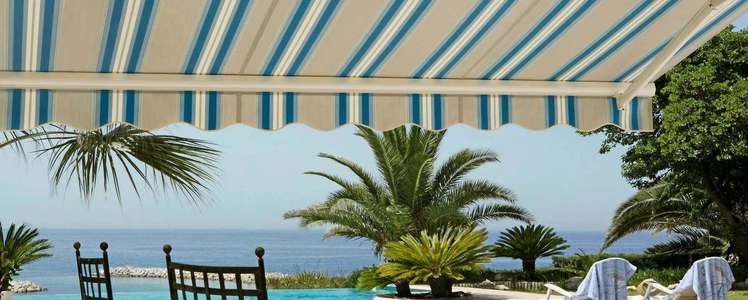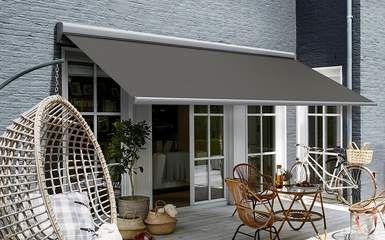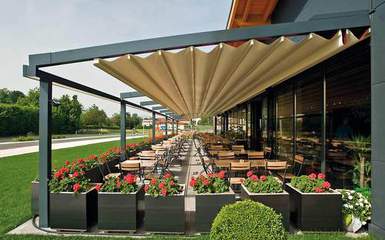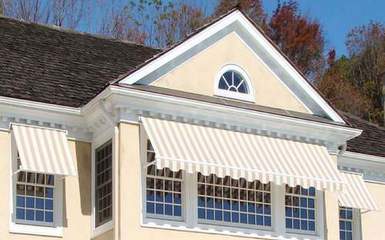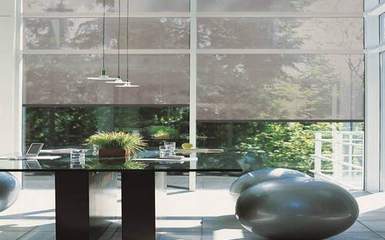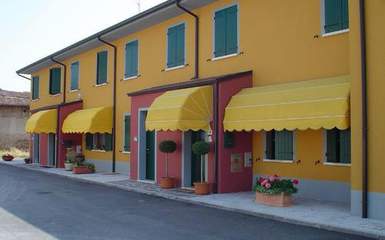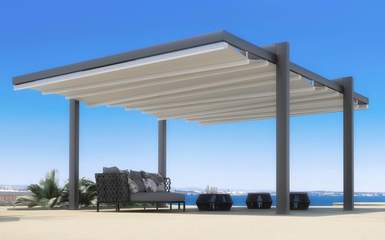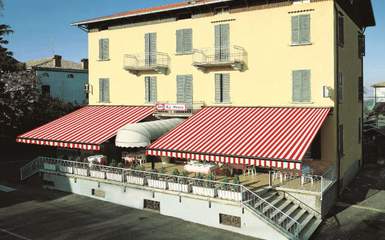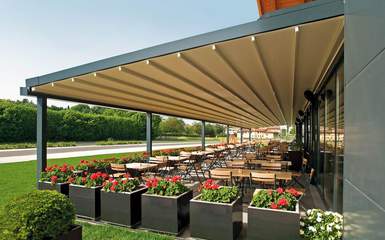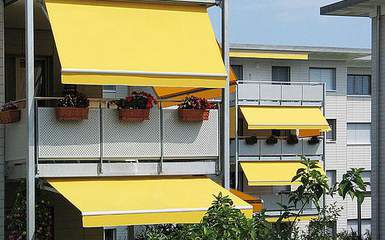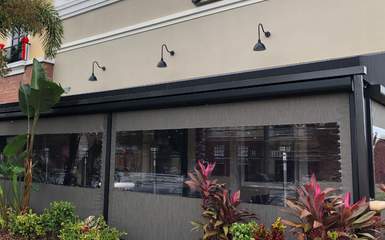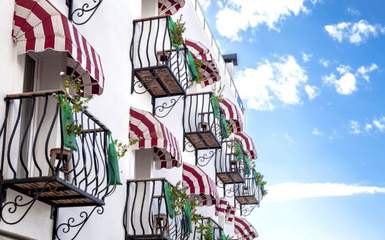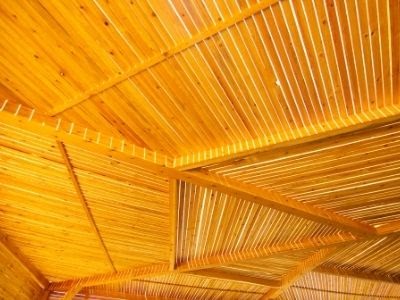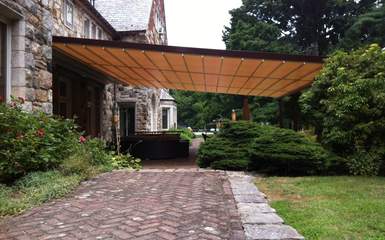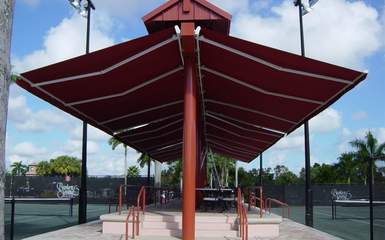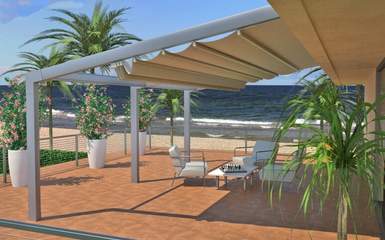A pergola is a structure that you can build over your deck or patio. A pergola can be used for many purposes, such as an outdoor living space, shielding people from the sun, or providing shade for plants.
There are many different types of materials that you can use to construct the frame of your pergola, including wood, aluminum, PVC, steel, stone, brick or a combination.. As a homeowner, you might wonder what type of wood is best for your pergola. Will it be sturdy enough? Is one type more resistant to weathering than another? Read on as we explore some common woods used in pergolas and discuss their advantages and disadvantages.
Why Is the Type of Wood Important When Building a Pergola?
One of the main reasons that you want to have a wood type in mind when building your pergola is because you need to know if it's suitable for being outdoors. Some woods are more resistant to weathering than others, so it's important that you understand what types do better outside in all weather conditions. In addition, certain woods have more aesthetic appeal than others, and you'll want to consider this when making your final decision.
Which wood you choose is also important when considering which type of finishing you can use. For example, if you plan on painting your pergola to give it a different look, you'll want to make sure that the wood you use is easy enough for the paint to adhere to.
The Importance of Using a Durable Material for Wood Pergolas
A pergola is a great way to add some shade and dimension to your outdoor space. Choosing the right material for the structure is important because it will affect its longevity and maintenance. They need to be built with durable material, as they are often exposed to harsh weather conditions and natural forces.
A pergola typically consists of posts that rest on a base and rise up towards the sky like columns. Wooden posts are often used, but they must be treated with a solution to make them last longer. A pergola can also be made from steel, aluminum, PVC, stone, or brick; each material has its own pros and cons. If you are looking for a timeless material that can look good in any setting, then wood is your best option.
Best Types of Wood for an Outdoor Pergola
There are several popular types of wood that are used in pergolas, including Cedar, Redwood, Douglas Fir, Tropical Hardwood, Pressure Treated Wood, and Modified Wood.
Cedar
One of the most common woods used for a pergola is cedar. More specifically, western red cedar. It's known for its durability and resistance to insects, making it an excellent choice for building or home decorating projects. It can be found abundantly throughout North America and Canada and is usually easy to purchase.
Cedar has long been known as one of the best materials available when it comes to building structures like decks and patios because it resists rot and decay so well. This makes it an excellent choice if you want something that will stand up to frequent use year after year.
This type of wood is easy to work with and as it's naturally resistant to decay, making it a good choice in high-moisture areas or where there are higher humidity levels. It can even tolerate being submerged in water for extended periods of time.
Cedar is also one of the most beautiful types of timber for a wood pergola, but it is also very expensive. If you want a wood that is very resistant to weathering and comes in an elegant golden-reddish hue, then cedar may be the best choice for your pergola.
However, one of Western red cedar wood's disadvantages is its lower shear strength than species like Douglas fir. Shear strength is important when considering what types of loads or stresses can be put on your pergola. If you plan to do any type of heavy-duty work with your pergola, such as adding a retractable fabric roof, rotating or retractable louvered roofs or installing lights, hanging plants, a swing or planning on hosting a lot of outdoor parties, you will want to make sure that the wood you choose has a high enough shear strength to handle it.
Redwood
Redwood is another beautiful wood that is resistant to weathering and also comes in beautiful golden-reddish hues. Redwood is generally more expensive than cedar, but the quality of the wood can depend on where it is harvested. Some species are better than others, and some forests offer higher quality products than others. You'll want to do your research before making your purchase if you're looking for something that will last for decades with minimal care.
One positive thing about redwood is that this type of wood tends to be very strong. Redwood is also very resistant to fire, so it's an excellent choice for locations near hot tubs, barbecues, or decks because it won't catch on fire as easily as other types of wood.
Redwood also doesn't require much maintenance because it resists rot and decay so well. You'll likely only need to do some basic upkeep, such as cleaning and staining every few years.
A downside to redwood is the tannin that gives the wood its distinctive red color can bleed out if it's not treated correctly.
Douglas Fir
Douglas firs are conifers that grow in the Western United States and Canada. They are commonly used for construction, furniture, and decorative items. Douglas fir is a softwood that has a number of uses. It's used for things like timber framing and other construction purposes, resins, cellulose for paper products, plywood, and lumber.
Douglas fir is a reasonably inexpensive wood but doesn't have the longevity of some other types of wood like cedar and redwood. It can be a fairly moist wood, so it might need repeated painting at first until it looks like it has dried out.
Douglas fir wood pergolas are sturdier than other woods against adverse weather conditions such as severe winds and thunderstorms, but they are prone to insect infestations, so it's important to maintain the health of your Douglas fir pergola with regular upkeep.
Pressure Treated Wood (PT)
Another type of wood that is a good budget choice for a pergola is pressure-treated lumber or PT for short. This type of wood has been injected with preservatives to make it more resistant to weathering and insect infestation while also making it last longer. The issue with PT wood is that it lacks the style of natural wood because of the green tint or blue streaking in PT; it’s not generally thought of as a good choice for aesthetic projects.
Most homeowners will choose to stain the pressure-treated wood pergola for a more attractive look, resulting in requiring more maintenance for upkeep. An additional concern is that the chemicals used in the treatment might be harmful to people or pets.
Tropical Wood
Another type of wood that is popular for outdoor projects like pergolas is tropical hardwood. This type of wood is easy to find, comes in a variety of different styles, and can be an excellent choice if you are looking for something that will last for decades before needing any upkeep.
One positive thing about tropical hardwood is that it's naturally very stable. It doesn't shrink or expand much with changes in humidity which makes it great for building projects because it won't warp or twist over time.
The most significant advantage that hardwood has over softwood is obviously it is much harder. Janka ratings are a good way to measure the hardness of different types of wood. The higher the Janka rating on wood means that it is more durable and will better stand up to the ravages of time. The Janka hardness of all tropical hardwoods is 1,500 or higher. If you compare this to Redwood which has a Janka rating of 450, you will see that hardwood is much harder than softwoods.
One downside of using Ipe or other tropical hardwood is that it can be challenging to work with compared to softwood. It requires special tools for cutting and shaping, which increases the price due to the time involved in processing this type of lumber. The thicker the boards are, the more expensive they are going to be. If you need thick beams or planks for your pergola, then make sure to pencil out the complete cost before buying anything.
Modified Wood
This is a great choice as it uses fast-growing sustainable trees that are enhanced using a non-toxic natural process to provide the same strength and hardness as tropical hardwood with much less environmental impact. You also don't have to worry about any harmful chemicals or preservatives being used on it.
Modified wood has an exceptionally long life, with very high resistance to decay, insect infestation, and termite damage. It is also extremely robust, with a Jenka rating similar to tropical hardwood.
There are limited downsides to this type of wood, but it does cost more than regular press-treated lumber.
Steel vs. Wooden Pergolas
If you are looking to add a pergola to your home, you might be wondering if steel or a wooden one is better. While both offer their own benefits and disadvantages, it all comes down to the look that you want for your home. If you're on the fence about which option would work best for your property, here are some points to consider when making this decision.
A wooden pergola can be more aesthetically pleasing, but it can also be more time-consuming to maintain. A wooden pergola has an advantage over steel because it allows you to create your own design. You can use different types of wood, stain them and even paint them with whatever color you want. A steel pergola will never give you this same freedom or flexibility.
The next thing you'll need to consider is how much shade you want from your pergola. This will have a big impact on your choice between a wooden and steel one because they each offer their own benefits in terms of shading. If you want as much sun protection as possible, the best option would likely be a wooden pergola with very large slats for maximum shade coverage. However, if you do not get too hot in the sun or simply want something decorative on your property, opting for a simple steel pergola might be easier and less money.
Another thing to consider is the durability of the material that you choose for your pergola. You want something that can withstand weather and last for many years. The best choice will likely depend on where you live since outdoor elements such as snow, rain, humidity, and wind can affect materials differently depending on which part of the country you live in. If you live in an area with high winds, then a wooden pergola might not hold up over time because it could become damaged more easily than a steel one would.
In Conclusion
A pergola is a great addition to any outdoor space. They are beautiful structures that can provide shade, cover an unsightly area, or even be used as a trellis to grow vines on. The kind of wood you use will have a huge impact on how it looks and performs in your yard. Not only does it determine the strength and durability of your structure, but it can also affect its appearance.
No matter which type of wood you end up choosing, make sure it is treated adequately with either an exterior varnish or paint if it's not naturally weather resistant. This ensures that your structure will continue looking its best throughout all four seasons while protecting it from the elements.
Explore the different types of wood we have discussed to determine which one would look and work best for your property/location. If you are going the DIY route, you can always combine different woods to get the look you want. Some people even like to use cedar for the posts, redwood for the beams, and Ipe or tropical hardwood for the decking. For more information on pergola kits
Contact our retractable residential and commercial awning, pergola, screen, and canopy experts using our contact form, our live help chat, or call us in the USA or Canada toll-free at (866) 438-2964 or outside the USA or Canada at (305) 628-2424.
![Folding Arm Awnings Folding Canopies]()
![Retractable Pergola Covers Awnings]()
![Retractable Drop Arm Awnings]()
![Retractable Patio Screens and Vertical Drop Awnings]()
![Retractable Window Awnings]()
![Retractable Free Standing Awnings and Canopies]()
![Retractable Lateral Arm Awnings]()
![Retractable Pergola Roof Covers]()
![Retractable Side Arm | Drop Arm Awnings]()
![Power Retractable Screens]()
![Retractable Canopies for Commercial Buildings]()
